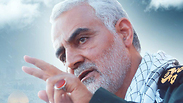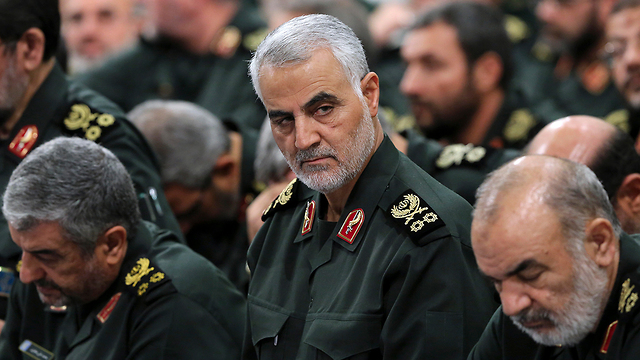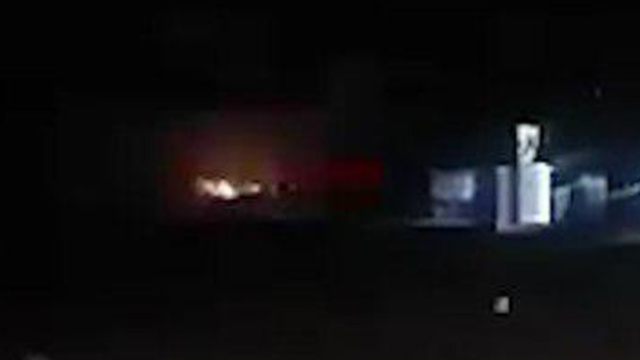
Iran's hasty, failed attempt at revenge for Syrian-Iraq border attack
Analysis: Monday's rocket launch attempt, most likely by Iranian-backed Shi'ite militias shows Tehran is determined to prove it is a force to be reckoned with, coming just hours after a deadly strike on a target on the Syria-Iraq border
The missile launches from Syria that were spotted by the Israel Defense Forces on Monday morning were probably a failed attempt by Iran to exact swift revenge for an attack attributed to Israel against targets on the Syria-Iraq border.
The shooting, most likely insitgated by Qasem Soleimani, the commander of the Iranian Revolutionary Guard's Quds Force, could indicate a change in its pattern of response. If in the past, the Iranians waited, prepared and tried to hide their fingerprints - now there is an immediate response.
The attack on al-Bukamal – in which at least 18 people were killed, including Iranians - could be a significant disruption to the establishment of an Iranian land corridor for weapons that stretches as far as Syria and Lebanon.
Soleimani is determined to show that he is not a doormat that Israel can simply step on.
Last time the reaction was so immediate, probably also carried out by Iranian-allied militias, was a rocket attack targeting at Mount Hermon on the Golan Heights in June this year.
Hezbollah has tried to fire on Mount Hermon several times. This time, it was probably Shi'ite Lebanese militias, part of Iran's Shi'ite Foreign Legion, which was also responsible for the attempted drone attack on Israel two weeks ago.
A military enclave with Assad's approval
The al-Bukamal border crossing, located near a main bridge on the Euphrates River, is probably the most important link in Iran's land corridor spanning from Iraq to the Lebanese coastline.
Presumably, this is the reason for the attack. Logistical supplies and missiles from Iran are expected to pass through Hezbollah and the additional front against Israel that the Revolutionary Guards under Soleimani's command set up in Syria through a multinational force of Shi'ite militias.
Defending the border crossing and the militia camp from Islamic State, which is still very active in the area, is paramount. They are also defending against Kurdish-Arab forces and Syrian forces assisted by American advisers.
The Iranians use the permission given to them by Syrian President Bashar Assad to act in the area to establish a military enclave controlled by them that will serve both fronts – Syria and Lebanon. Soleimani himself visited the place recently to monitor the progress of the work.
It's not the first time that unidentified aircraft have attacked al-Bukamal.
Another assault that was publicly acknowledged took place in May 2018, when Assad's army, reinforced by Shi'ite militias, was still fighting to conquer al-Bukamal from IS - but the Shi'ite militias had already rushed to establish a temporary base there to serve the continental corridor, via a bypass desert road.
The attack was initially attributed to Americans, but the Pentagon denied any connection to the incident, and was intended to prevent Iran from establishing a military base in the region.



















